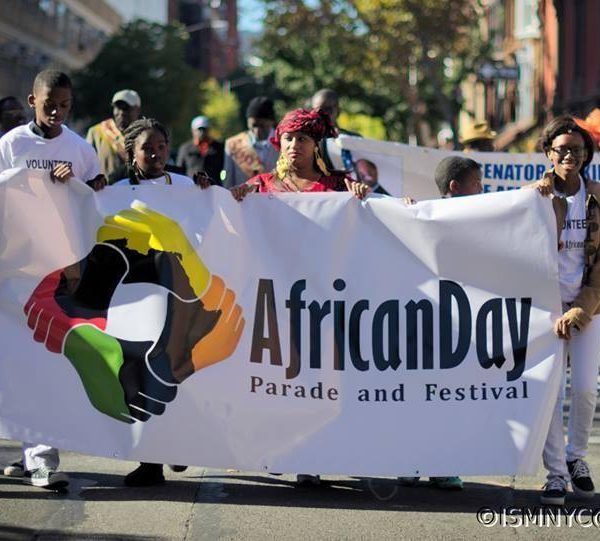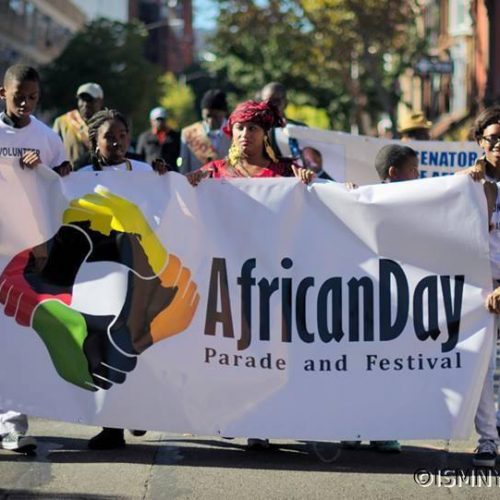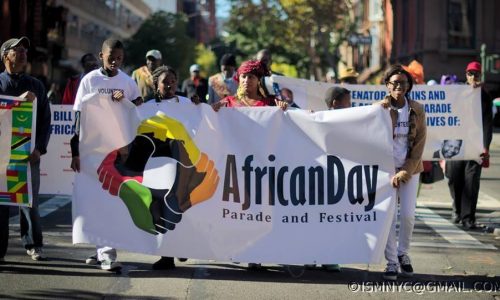Essay for the NYC African Community
By Abdullai Ahmed | Jan 2021 | Design
The writer is a Ghanaian-American data analyst, founder, user experience designer, and entrpreprnue. All opinions and ideas expressed are those of the author and do not necessary reflect the positions of the company.

In the middle of the night around 2am, a young immigrant from Ghana is heading to work by riding the number 4 Train from Burnside Avenue in The Bronx to Columbus Circle in Manhattan. At 7am, another immigrant, a female nurse from Nigeria, walks down Grand Concourse in The Bronx going to work at a major hospital in Brooklyn, where she provides the best of care to patients from all walks of life in the city that never sleeps.
It’s 3:30am and yours truly, the author, had to cut his sleep short in order to share on new challenges facing a community, the State of the African Community in a country that is now divided, at minimal, on two important subjects: leadership and immigration.
In the middle of the night around 2am, a young immigrant from Ghana is heading to work by riding the number 4 Train from Burnside Avenue in The Bronx to Columbus Circle in Manhattan. At 7am, another immigrant, a female nurse from Nigeria, walks down Grand Concourse in The Bronx going to work at a major hospital in Brooklyn, where she provides the best of care to patients from all walks of life in the city that never sleeps. It’s 3:30am and yours truly, the author, had to cut his sleep short in order to share on new challenges facing a community, the State of the African Community in a country that is now divided, at minimal, on two important subjects: leadership and immigration.
I lived in New York City for over 20 years. During this period I had engaged with many community leaders, business men, local politicians, and most recently at one of the major hospitals serving the NYC African and African-American population. I must admit that my years of experience dealing with my African community and leaders in many capacities provided me with mixed-feelings: insight, hope and (sometimes) despair, and at times I wonder what happened (where did we go wrong), or may happen to this thriving community in the near future. I therefore write this Essay not just on my behalf, but on behalf of the thousands of African community members and leaders who wake-up every day trying to help the people before depending on other communities and government.
I know how it feels when things go wrong for any young immigrant, especially in tough times like the
pandemic, COVID19. I had experienced it first hand during the 9/11 attacks of the Wall Trade Center. But I never give-up on my big dreams. I pushed on in the hope that one day things will get better, even perfect. But each time I have noticed a very important issue: real African leadership is required for positive change in protecting the best interest of the NYC African and African-American community.

My personal, professional and leadership experience now tells me that our NYC African community is experiencing one of the most silent things hurting Africans, and for that matter new immigrants in most U.S. We are facing a major problem that I call “the matrix of ego-ethno calamity in African leadership.”
Let me explain this problem-statement because it is very important to understand the context before passing any negative judgment. First of all, anyone who truly knows me over a long period of time can testify that I am not interested in running for any political (leadership) office, but I’ve already done many good works in my professional and personal life. I have walked the long road before and continue to share great ideas.
The challenge we face at hand should concern eveey African leader and youth that live and work in this city. I will not mention any specific names, but I am certain that most of these leaders are not very aware of the fact that some of their self-centered actions or decisions affected many community members that they claim to be serving, especially in NYC five boroughs.
As a student of social science philosophy, I suppose anywhere we have a room full of Big Men with “unchecked egos” flying all over the room then we have a firestorm. I see this as (especially) problematic in the NYC African community and I feel it has escalated to greater length over the last decade.

I’m not perfectly sure if I have a big-ego myself, but I can tell you that I try to keep that in check all the time when dealing with my African brothers and sisters. It is simply typical of my style of play. I also don’t usually respond to any negative attacks from my people, until I actually realize it may have a negative impact on my professional work. The most important lesson I have learned (over the years) is that most of the big men who go around spreading lies or rumors all have one thing in common: they have big-egos and see younger leaders as a threat to the position they hold in the city that never sleeps. So they don’t sleep, for they will attempt every trick to hold the youth back.
As a member of the community, I propose that our African elders and leaders must learn to work together and be respectful of one another. We must also understand that there are many young men and women in the community who are interested in finding solutions to our problems, especially in issues such as inmugration, business and health care.
Lastly, we do have a situation where ‘ethnicity’ has further created layers of problems for the African immigrant almost anywhere you can fund a Mosque, a Church, a supermarket, and new barbershops. We tend to bring Africa-made problems to the new places we now occupy in the United States and that is something that must change. We have to move above and beyond the big-egos and local-made problems in order to embrace what I call the “common-good.” We must avoid the tribal, religious, and ethnicity levels of thinking to make a way for our common African identity. We have to know and understand that the United States of America was not created along any tribal, religious, racial, or ethnic lines. If my history lessons are right, I think America was established by great men and women (mostly from European countries) in 1776 by the founders to serve all who yearn for freedom, justice, and equality in the New World.
I really believe the original ideas used by the American founding fathers that you can remain true to our African Identity. Every one of us living in the city have a role to play in Making America.
My brothers and sisters, were is a great country to the young man in the #4 train who has a dream. Here is a country to the nurse who wants to continue giving medicine to patients.
Here is a country that continues to welcome millions of people from JFK Airport in NYC.
Our community leaders and elders can do many things to ensure that any young leader who is rising is supported, nurtured, and ultimately not to become a victim of big-egos, religious, ethnic, or his/his naturalization status. We have many young men and women with the qualifications to step-up and lead.
Let us try and build a new-front, a diverse and African-focused leadership, for protecting our communities, families and individual dreams without victimization. We should join hands with other NYC community leaders like the Jewish-Ameican community, Italian-American community, Adian-America community, Arab-American community, and so on. While we can never avoid the little problems outlined, we can make sure that we do not victimize each other in the quest for
power or leadership in our various associations, we should find new solutions to the challenges we face. After all, the future might as well be Pan-African for us.
I recently joined a WhatsApp Group recently created by the African Advisory Council of the Bronx Borough President with the aim of sharing useful information with members of local leaders managed by the African Advisory Council of the Bronx. This WhatsApp Channel may be a good step in the right direction, but in addition I’d like to see an extension with involvement of African Consulates and Embassy representatives supporting the community and leaders doing good works.
I know leaders like Mohammed Mardah, Famod Kone, and the Ambassador of Sierra Leone Mr Siqiue Abubabakr Wai can continue to play a critical role in this regard. The African Union Mission outfit at the United Nations in New York can step up and provide additional support for leaders and entrepreneurs at this critical times.
As community leaders, we must continue to do our part in building our young men and women to tackle the issues we now face in our communities. I conclude with what an elder once told me and a friend: “in order to help your people, you may have to work not from within, but from without.” For me, this elder is a good statesman and his position, which was expressed to me between 2011 during a brief meeting at his residence, continues to resonate with me. We have to do more in order to uplift our people in the United States in order to affect the positive changes we wish to bring back in our home countries.
We can be creative by learning from the rich history and diversity of this City, a city that welcomes people from all walks of life. For example, we can think of new ways to engage local politicians, small business owners, and support entrepreneurs. We can achieve our development through positive action and leadership. Can think of the NYC experience as a positive part of our Pan-African development agenda and success stories.



